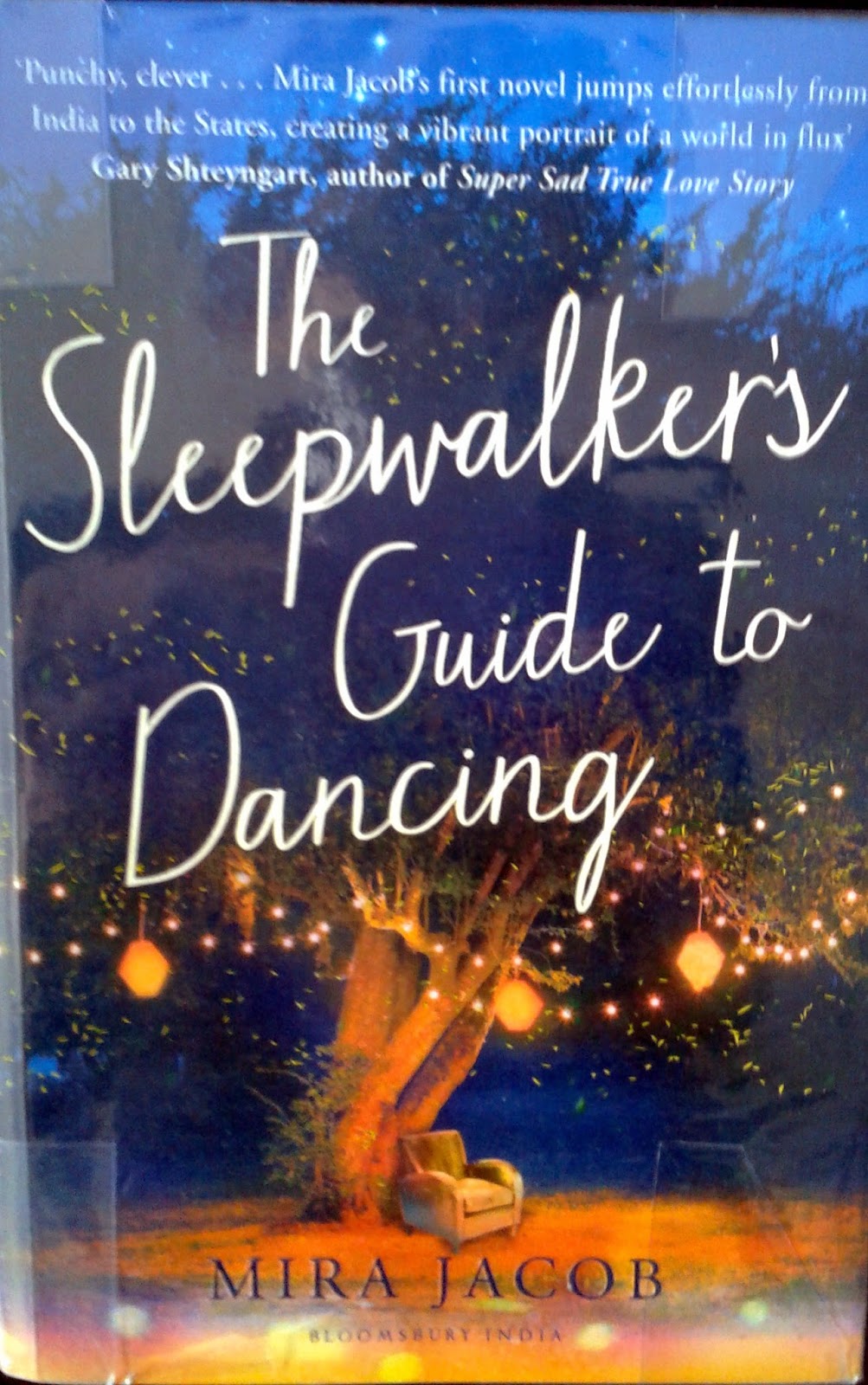
The Indian reader should be forgiven for rolling her eyes soon after she starts to read The Sleepwalker`s Guide to Dancing by Mira Jacob (Bloomsbury India). Because the story seems to faithfully check all the little boxes that serve as bullet points for the Diaspora novel. Immigrants transitioning awkwardly, check. Father, white collar professional (a doctor in this case) in small town USA, check. Mother unhappy, not fitting in, wanting to return but return to what she doesn’t quite know, check. Kids struggling to fit in, coping with comments about the colour of their skin and other angst-inducing and very real problems, check. Tragedy strikes, check.
**
And then, the novel sort of hunkers down suddenly, pulls the lens tight and begins the business of telling its story in right earnest. Soon the aforementioned reader discovers that the sweep of the story is not an epic one, it is on a smaller, more intimate scale. Which is effective. People come and go, their lives intersecting and impacting the main protagonists but this is basically the story of the Eapens, Dr Thomas, his wife Kamala, his son Akhil and his daughter the narrator, Amina. And Jacob, once she fixes focus on the Eapens, doesn’t shift focus even for a minute.
**
The blurb on the book jacket (and what a sumptuous jacket!) says the story jumps from India to the United States. Actually the India bit is more a mise en scene; the Eapens are merely visiting Salem in Tamil Nadu, so we get to meet Thomas` family back home and realise all is, of course, not well there. Before we can digest that bit though, we are taken to America and set down firmly, first in Seattle where Amina formerly a photojournalist of some substance, is now a professional wedding photographer, and then over to New Mexico which is where the senior Eapens live. The reader is given a walkthrough of both Seattle and Albuquerque, both cities gently coming alive through Amina`s eyes.
**
Dr Eapen is a brain surgeon who is facing twin demons now: his own intimations of mortality as well as visitations from his deceased family. Kamala Eapen has to step up to the plate for her husband, not the easiest of things to do because she hasn’t exactly been the epitome of a loving and supporting spouse all this while. Akhil Eapen starts to show alarming signs of narcolepsy ( `a brother turning into furniture`) and decides he wants out. Amina takes picture of a native Indian leaping to his death that changes her life. Unable to handle her sudden fame and the soul-searching it involves, she sneaks back into the comforting shade of innocuousness, more than a bit bruised by life.
**
All of them have to come to terms with whatever is coming their way at the moment; all of them do, with varying amounts of vulnerability and courage.
**
Jacob parses the anatomy of loss with sensitive language. `…her parents from this point on would need her to be more than she had ever been, and along with their need would come her inability to fill it.` `Like many people whose lives had formed around a particularly painful incident, she had grown used to providing ellipses around the event…. to keep conversation comfortable. `They sat next to each other like stones thrown together at the bottom of a pond.` `A tear ran down her grandmother`s cheek, as fast and unexpected as a live lizard.` `Never mind that outwardly they reassured each other that the fight… was just one more skirmish in their parents` never-ending battle; inwardly they felt damned by the very sight of it, instantly hardened, their hearts crystallized with shock.`
**
There is some little awkwardness in the usage of certain words like the Malayalam chee and paavum, and with the Hindi na with an `h` attached; a character says `nothing will be left to you, nah`.
**
Jacob`s is a restrained, a controlled style of writing. There is an economy of words which however, distils rather than curtails the gamut of emotions the Eapens go through: little spurts of joy and an inordinate amount of pain. They are your regular irregular Americans of Indian origin and the skeletons in the family cupboard, or rather that one skeleton, is ready to emerge.
**
The conclusion is particularly painful; the reader watches (and I use the word advisedly) as Dr Eapen desperately tries to woo back his dead son even as he ignores his living, hurting daughter. Then again, of such painful ironies are family stories made.
**
Sheila Kumar worked for the Times Group and now writes for many newspapers and magazines on matters concerning just about everything under the sun. She has had her short stories published in as many as six anthologies.Sheila’s first book, a collection of short stories titled Kith and Kin (Rupa Publications) was released to very good reviews.






